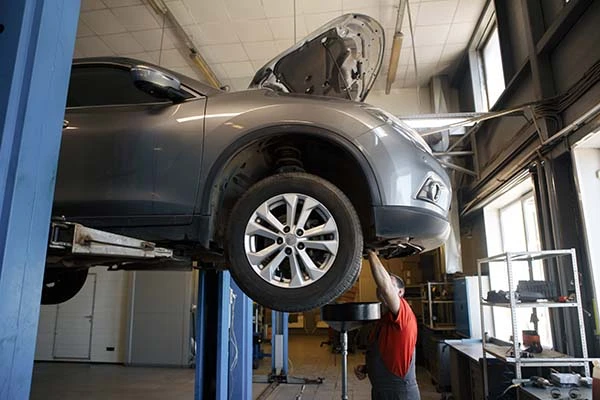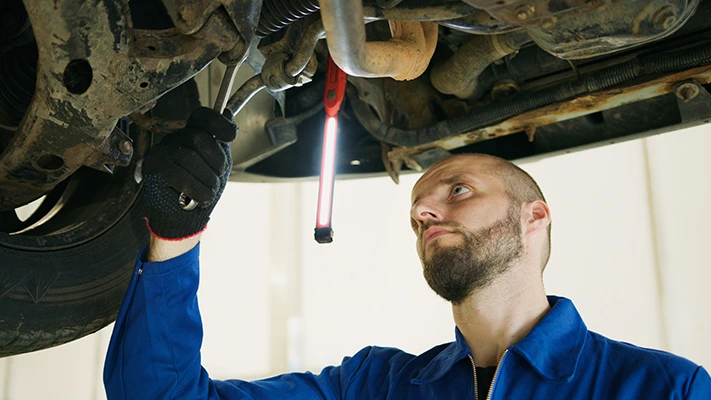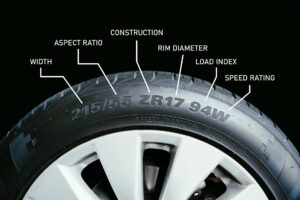Rebuilding cars is a popular hobby across the world. Some people give them a luxurious transformation, while others end up with rusting metal scrap. If you’re planning to rebuild a car yourself, think – is it worth buying a car with a salvage title? Learn more about the pros and cons of that here.
Buying a salvage title car isn’t just about changing a flat tire and taking care of bad spark plugs; these vehicles are considered useless. They are busted and are rarely safe to even sit in the driveway. But if you have enough mechanical knowledge and want to try salvaging and rebuilding, I won’t stop you. I’m here to help you figure that out.
What Is a Salvage Title Vehicle?
A salvage title car sustained damage worth near to or higher than its original value. Cars that are so damaged they’re no longer even fit for repair are deemed ‘total losses’ by insurance companies and given salvage titles.
Salvage title laws are similar in most states, with some exceptions; for example, New York’s law says that the car’s damage costs must be 75% higher than the initial value for them to be considered salvage. In comparison, in Minnesota, it’s 80%.
So, if you buy a salvage title car in Minnesota or New York, although it’s pretty much the same everywhere, know that this four-wheeler will be busted almost beyond recognition. If you aren’t from these states but want to know the local law, call the nearest DMV or transportation department for that info, or look it up online.
When Does a Vehicle Get a Salvage Title?
If someone disconnects the car alarm and steals the vehicle, and the owner files a claim and gets paid, that would be considered salvage, besides being a criminal felony.
This is one of the situations in which vehicles get salvage titles. Others include:
- Traffic accidents,
- Water and flood damage,
- Smoke and fire damage,
- Hail damages.
Can Salvage Titles Be Bad?
Salvage titles can be harmful, primarily in cases where the cars weren’t adequately repaired. Rebuilding and repairing are essentially different things; rebuilding could be purely cosmetic without an indication of it.
Rebuilt cars go through inspections, but as we know, there are scammers in this world that want to rip people off, and sometimes used cars are an exceptional platform for that. If you can, ask for complete history and damage details before purchasing a salvage title vehicle.

Is It Worth Buying a Car With a Salvage Title?
To make it clear – salvage cars aren’t cars for off-road driving – they’re unfit to operate in any way, shape, or form. And if you can turn the key and start them, driving them could be too dangerous. Judging by all this, buying such cars isn’t worth it.
The answer depends on the car damage and the types of repairs. Of course, it won’t simply come down to changing the U-joints and quickly replacing a tail light, I know what’s at stake, but some salvage is simply beyond repair.
Of course, this purchase has pros and cons. I’d say it’s worth it if you have great mechanical knowledge and understand the stakes of rebuilding a vehicle. It’s not worth it if you’re someone who only sometimes comes through with their plans since this project is too big to sit idly in your garage.

The Advantages of Purchasing a Salvage Title Car
Folks who understand how cars operate usually love salvage projects. They can quickly assess the damage and the necessary parts to give the car a boost. Cleaning the seat belts as well as the steering wheel comes after they’ve successfully booted up the car’s system again.
Besides these self-proclaimed grease monkeys, other car-rebuilding enthusiasts can invest in salvage cars for the following reasons.
You Can Save a Lot of Money on a Vehicle
It’s no secret that the value of damaged cars plummets, which can be an upside in some situations. When someone wants to invest in a salvage title vehicle, they’ll save up to 40% of the car’s original value; in many cases, this is a great deal.
The remaining funds then play a massive role in planning the budget for the parts that need to be repaired and replaced. Before buying new parts (going head-first, basically,) I recommend you do the following:
- Evaluate the damage to the car parts,
- Check which parts took the biggest hit and work on replacing them first,
- Get the scoop on the best market prices to avoid over or underpaying for parts.
Some Salvage Cars Might Be Valuable Finds
Can you imagine how many cars under salvage titles are actually in good condition? This number isn’t small, primarily because vehicles stolen and recovered after a claim are also salvaged. The damage on these is often quite repairable, and you get a solid-functioning four-wheeler for 20% to 40% less of its original cost.
Additionally, some older vehicles that have entirely lost their market value or have somewhat outdated mechanics are still sold in many parts of the country. Imagine snatching a cool oldtimer that needs some tuning – awesome, right?
This appeals to younger crowds that enjoy the reclaimed lifestyle and generations that want to dip into nostalgia. Using reclaimed stuff is a trend that has been pretty hot lately, so there are likely some great finds on the market with a higher demand for vintage makes.
Free Car Parts (At Least Those That Are Salvageable)
If the car you purchase is totaled on the outside but still good on the inside, there could be a way to use it. This is the opportunity to get free car parts in bulk, although not all would be in such good shape.
That’s OK, too, because some parts, despite being salvageable, are only sometimes a good idea to save. For example, if you need to replace the valve stem, it’s better to get a new one than to use a raggedy one from an old wheel.
Also, don’t think you can simply add brake fluid and turn the radiator and engine into a well-oiled machine. Before using the old parts, check out their condition – and I mean doing this while at the market, shopping for salvage title cars.

And What Are the Downsides?
There are some excellent advantages to purchasing a salvage title vehicle, but it’s hard to ignore all the things that make such investments risky and problematic. Running into a great deal could be advantageous, but how often does this happen?
Unfortunately, there’s always a 50% chance that the salvage vehicle you buy isn’t worth it. To predict that and get ahead of a wrong purchase, here are some disadvantages of buying cars with salvage titles.
Salvage Title Cars Aren’t Exactly the Synonym for Safety
A family with small children would know better than to invest in a salvage title car. In fact, anyone who knows a little about cars would make a risky move by purchasing this kind of vehicle. Kids or no kids, I can’t guarantee that investing in a totaled vehicle is a safe choice.
And, sure, you might have the grand plan of rebuilding the car and making it safe with your own two hands, but assess how long that could take before starting to panic that perhaps your investment was a bad one.
They’re Nearly Impossible to Pass On or Sell
If the investment turns out to be wrong, it’s okay. There’s no use in crying over spilled coolant, but you might start to sweat a little bit upon realizing that the totaled car you bought is impossible to peddle.
Purchasing a car with a salvage title is easy; getting rid of it is extremely difficult. In the end, you might have to give it away (if anyone would even take it for free) or lowball the price so much that profit seems out of reach.
Shoppers Could Get Scammed
Some resellers like to disable the GPS tracker with aluminum foil and mess with the car’s mileage; others want to convince buyers that their salvage title vehicle sustained only minor or cosmetic damage. The latter issue is especially dangerous to buyers since cosmetic damage can be hidden.
Technically, there would only be a few ways to prove you were scammed by the seller unless you do an exhaustive inspection of the vehicle. This process could pay off but might bode pricier than the investment itself, and it’s only possible if the seller allows it.
Think if this is what you want to go through at all before investing in a totaled four-wheeler.

Is It Possible to Get Insurance for Such Cars?
A massive downside to buying salvage title cars is that they are really difficult to insure. This is emphasized since the chances of insuring them are slim, primarily because they’re a safety risk.
Here are more common questions about insurance for salvage titles.
People Looking for a Mechanical Project Will Have Fun With These Cars
Cars with salvage titles have a fifty-fifty chance of being good investments. While there are some fantastic benefits to buying them, from diamonds in the rough to money-saving options, they can equally bring trouble to buyers if they’re too damaged or impossible to resell.
The biggest downside to purchasing a totaled car is the insurance. These cars can be insured well if a company chooses to do so, but this is a risk they rarely like to take. Just know that paperwork and struggles await if you decide to rebuild a four-wheeler by yourself.
Overall, I recommend investigating the vehicle as much as possible. Ask your mechanic for a full inspection, and the seller for a detailed history report, and learn what each type of damage means. This is the wisest and best way to get the most out of your investment.








